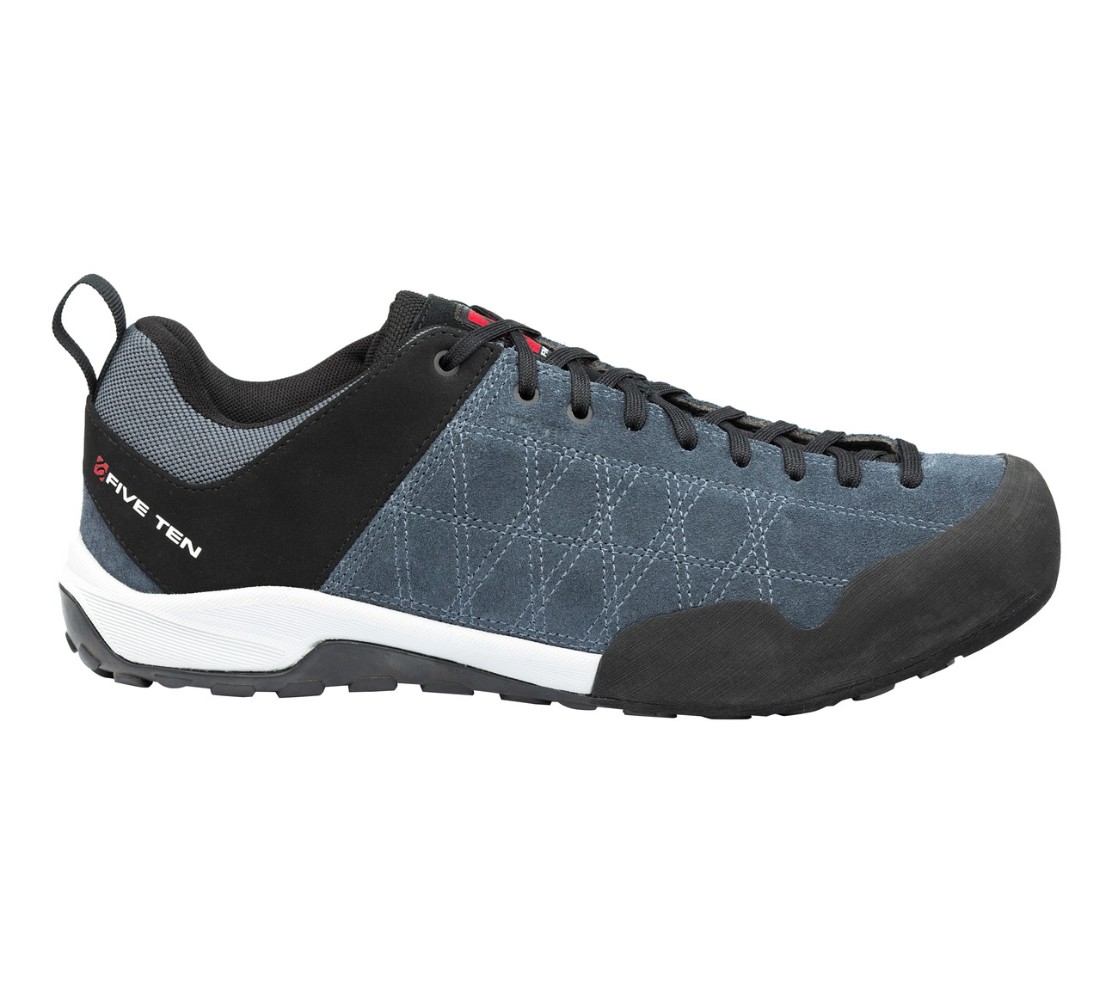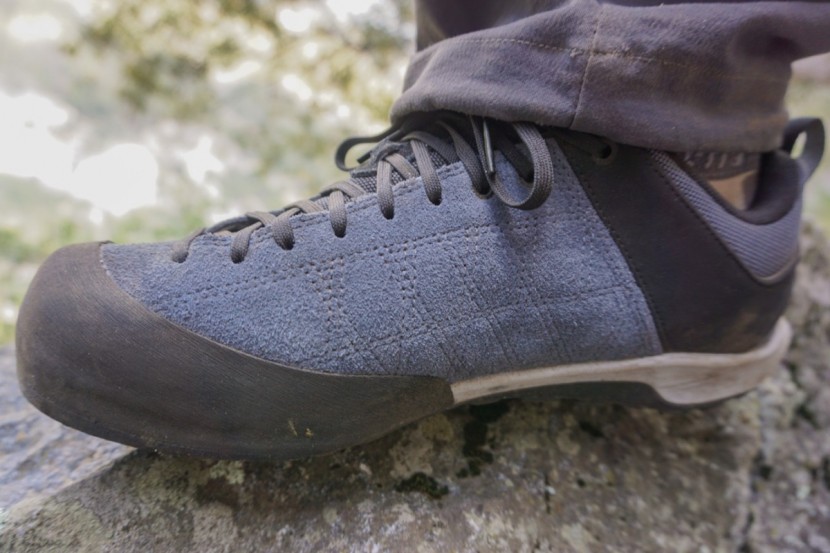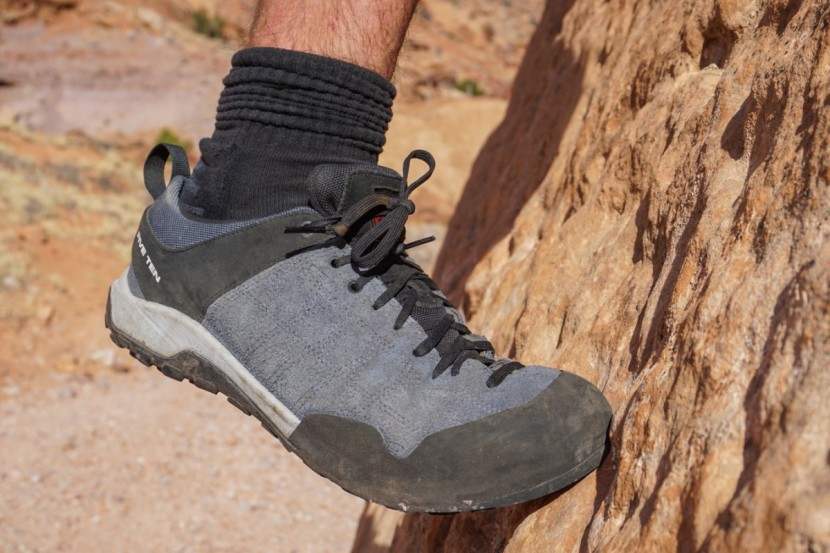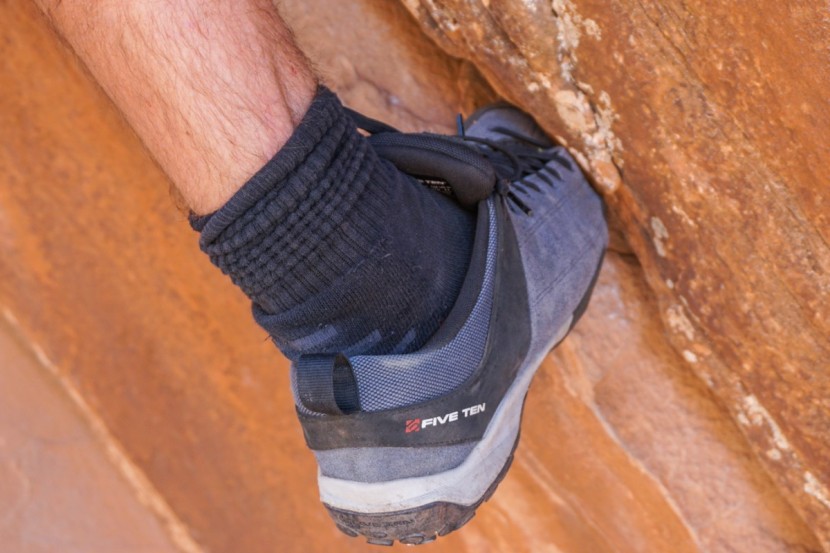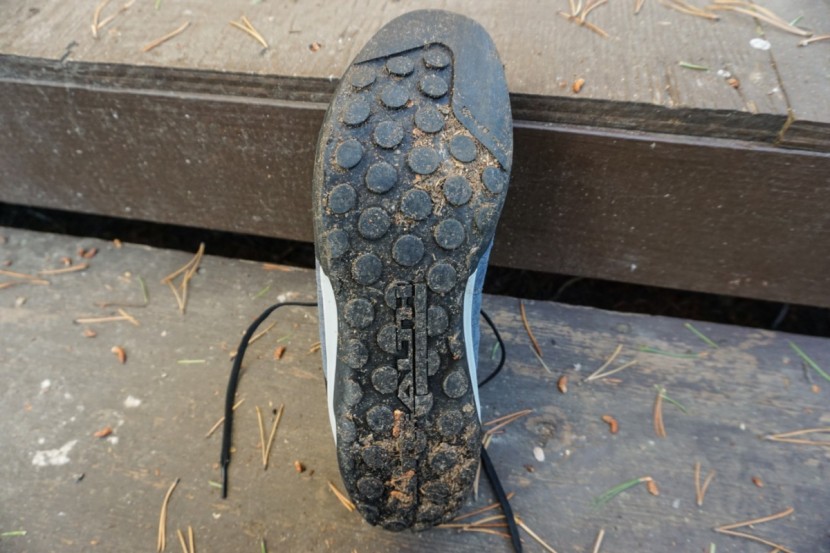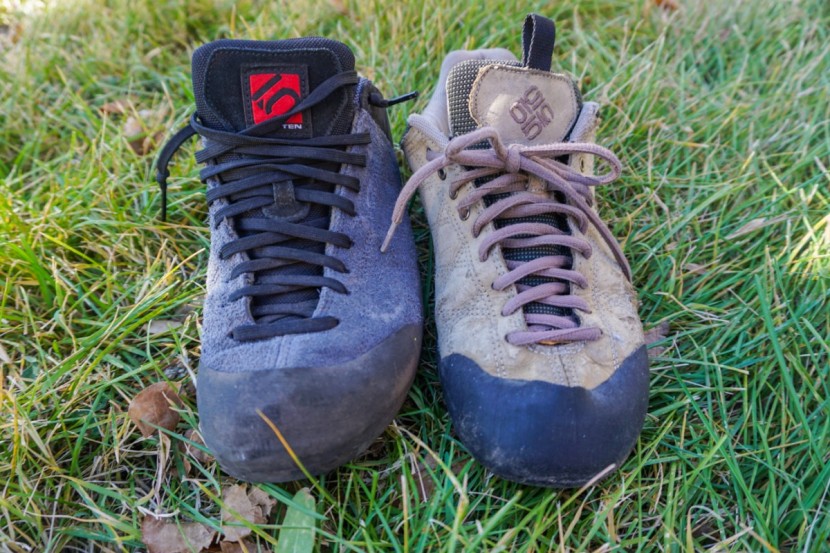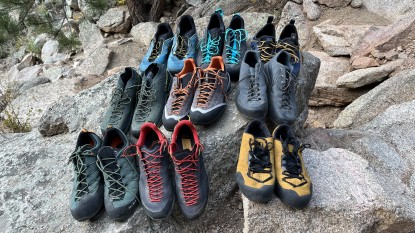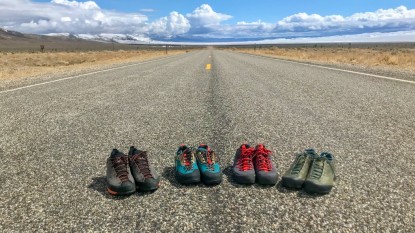Five Ten Guide Tennie Review

Our Verdict
Our Analysis and Test Results
The current version of this time-tested classic is a little more comfortable and supportive for hiking and carrying loads than before while retaining the majority of the climbing performance that has made it so popular. The Best Buy La Sportiva Boulder X is a much more supportive shoe for carrying loads or covering many miles, but is heavier and doesn't climb as well. Finally, the super-lightweight Evolv Cruzer Psyche is a fantastic shoe for kicking around the boulders between burns or toting up long multi-pitch routes if saving every ounce is your focus.
Climbing Ability
Climbing ability is where the Guide Tennie shines. The Stealth C4 sole with an edging pad up front smears like no other and edges better than all.
The toe profile of the latest version is a bit higher volume than in the past, limiting the crack climbing performance.
Edging
Our Editors' Choice winner edges very well. The midsole provides enough support to stand on medium-sized edges but is more sensitive than heavier models that edge well. The previous version of this approach shoe used a full sheet of C4 dot rubber on the entire sole, and the new molded sole's edging pad provides a little better edging capability. If edging ability is your main concern, size these down half to a full size from your street shoe size. You'll sacrifice hiking comfort, but this relatively high volume shoe edges better when fitted smaller.
Smearing
No doubt about it, many climbers consider the Stealth C4 rubber used on this approach shoe the gold standard for smearing ability. In our tests on the slick granite of Yosemite Valley and the rough Quartz Monzonite granite in Bishop, the Guide Tennie smeared better than all the other test shoes. Across the range of rock types we play on outside, this is the best shoe for smearing.
Crack Climbing
The Guide Tennie has a taller toe profile than the previous version by a few millimeters, meaning it doesn't fit as well into cracks as the previous version. But for flared cracks, the sticky rubber toe rand and moderately stiff forefoot provide excellent crack smearing ability. The redesign that gives this higher toe profile also provides significantly better hiking ability, and we are happy with this trade-off.
Hiking Comfort
We found this shoe comfortable for hiking and scrambling over uneven terrain. There are better approach shoes for hiking in this review, especially in muddy terrain or on loose dirt, but the Guide Tennie gets the job done.
Seven lacing eyelets allow you to cinch the toe down when it's time to climb or loosen the upper for comfort while hiking. This model is shipped from the factory with thin, abrasion-resistant laces. While the lace durability is appreciated, we found these laces a little challenging to get to hold a knot when new, and skinny enough to be uncomfortable on tender fingers after a day of climbing. If you aren't crack climbing in these and don't need the abrasion resistance, we recommend replacing the factory laces with a fatter lace that'll be kinder to your fingers. The Guide Tennie is one of the models we tested with a gusseted tongue, a feature we appreciate that helps keep sand and trail debris out of the shoe. The tongue and ankle collar also use synthetic materials rather than leather, allowing this shoe to breathe better than most.
Support
This shoe earned a support score in the middle of the products we tested. While there is substantial cushioning in the midsole for hiking comfort, the forefoot is fairly flexible. This contributes to its great smearing ability but doesn't provide a platform for carrying heavy loads. This said, many climbers have solid feet, and find this shoe supportive enough for carrying moderate loads. There are always tradeoffs, and we like the moderate support and moderate sensitivity of this shoe.
Weight & Packability
The Guide Tennie weighs in at 28.8 oz, making it one of the heavier shoes that we tested. We'd prefer a lighter shoe clipped to our harnesses.
The lightest shoe is the Evolv Cruzer Psyche, but it doesn't offer nearly as much support for long hikes and heavy loads as the Guide Tennie.
Value
The Guide Tennie is very affordable. It is a steal for the excellent climbing performance it delivers.
Conclusion
The Five Ten Guide Tennie is the best approach shoe for climbing and scrambling that we tested. Small improvements over many generations have left us with a shoe that hikes well and is more durable than past versions. We're glad the shoe that started the approach shoe category is still going strong and a great option for wall climbers, alpine scramblers, and valley rats alike.


